The magic of the first-born child, our Guru and confidante
“Mamma, sometimes when you scold me, in my head I say to you, 'Sade hue karele wali Mamma!'" You rotten bitter gourd of a mother.
“How is my baby doing,” I texted Sahar, my 19-year-old first-born daughter, travelling independently for the first time since the Covid-19 pandemic has abated. “I sometimes feel the same way I did when you first went to pre-school. A mixture of pride and anxiety. A celebration of your independence and growing up... as well as a yearning to be with you again.”
We have a family WhatsApp group that includes her younger sister and father, but I was texting Sahar separately. She will be away for three weeks, staying with a friend and exploring a new city with her.
“I'm doing good mamma, thinking of you all,” she typed back to me. “It's a weird feeling for me too, just a little off balance sometimes. So many things I want to clarify, how to be, how much of myself to expose. Learning to trust myself.”
As the first of our three children, Sahar and I find ourselves navigating many milestones of growing up together. She is the first I have been viscerally attached to. She is the one who shows me how to separate. She is the first who has witnessed my successes, she is the one who holds my hand when I feel overwhelmed as a parent. I respond to her dilemmas with examples from my own life.
Sometimes she tells me that she doesn’t want my gyan and to kindly not forward so many articles to her. At other times, she reminds me to write about us. “I want to know how you are thinking about what we are experiencing.” No other words have reassured me as much as these. My teenager letting me know that my words matter to her. Asking for connection with her parents.
On my laptop, I open my secret blog to read notes from her childhood years and am reminded of the nuances of our early partnership as ma and beti. I was a talkative mother the first time around. I spoke to infant Sahar a lot. I told her stories about the world outside our window as we travelled. I chatted with her as I bathed and dressed her. I gave her a running commentary as we attending weddings and social events together. Her father and grandfather would take her out for walks and say, “Sahar ko duniya dikhani hai. We are going to show the world to Sahar.”
I would be tongue-tied and awkward when I had to hand her to my mother and leave for work. I was not ready. It never became easy.
And then of course it did. Sahar held my mother’s hand and kissed me good bye when I was going off to the hospital to deliver our second child. She came to visit me in my room and peeped into the new baby’s crib. When I returned home, she watched her favourite song on loop on our television screen as I adjusted to our new life with two children in it.
In a video we have watched over and over again, two-year-old Sahar comes towards me, sitting in bed with our infant next to me and stops just short of hugging me. “Mamma is in pain, isn’t she?” she says in her toddler voice and accent. “Mamma ko dardi ho jaati hai na?”
My little baby, protecting me. Nurturing me with her tender love.
In another post on my blog, I write about the emergence of anger between Sahar and me. She is six and half years old and making a tearful confession to me.
“Mamma, sometimes when you scold me, in my head I say to you, ‘Sade hue karele wali Mamma! Rotten bitter gourd of a Mamma.” She cried and cried as I held her.
“I get angry with you but I don’t say this to you, because once when I had said something bad to you, you went in the bathroom and cried. I don’t want to hurt you.”
“It’s okay, baby. It is okay to be angry with Mamma,” I say to her. I’m sorry”
This scene records the crumbling of the safe, utopian shell that had contained both of us. We are stepping out as separate individuals with a range of feelings, many of which are inconvenient for us to hold within ourselves. But they are real and we must learn to make space for them.
In a week’s time, our young adult will return home to her family. She will share new plans. New dreams and aspirations will make her soar again. I want to meet her with the same energy and wild happiness with which I would receive her when she emerged from her playschool. “She looked at me and yelled with joy. We hugged and laughed and patted each other happily,” I have written in a post about picking her up after her first day at playschool in a new neighborhood. I am browsing my own blog to make up for how much I am missing her in our home.
The unexpected side-effect of absence is often how sharply one feels the presence of the other in one’s consciousness. Here’s to all the first-borns of the world. You are precious, you are valuable, the rest of us would be truly lost without the occasional scolding we receive from you.
This essay first was first published in The Tribune’s Sunday edition.

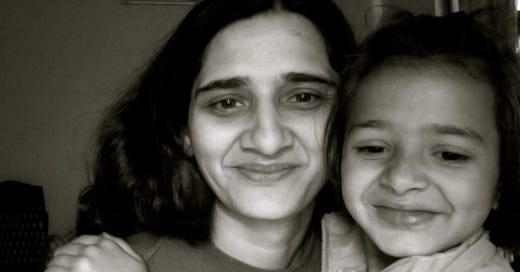


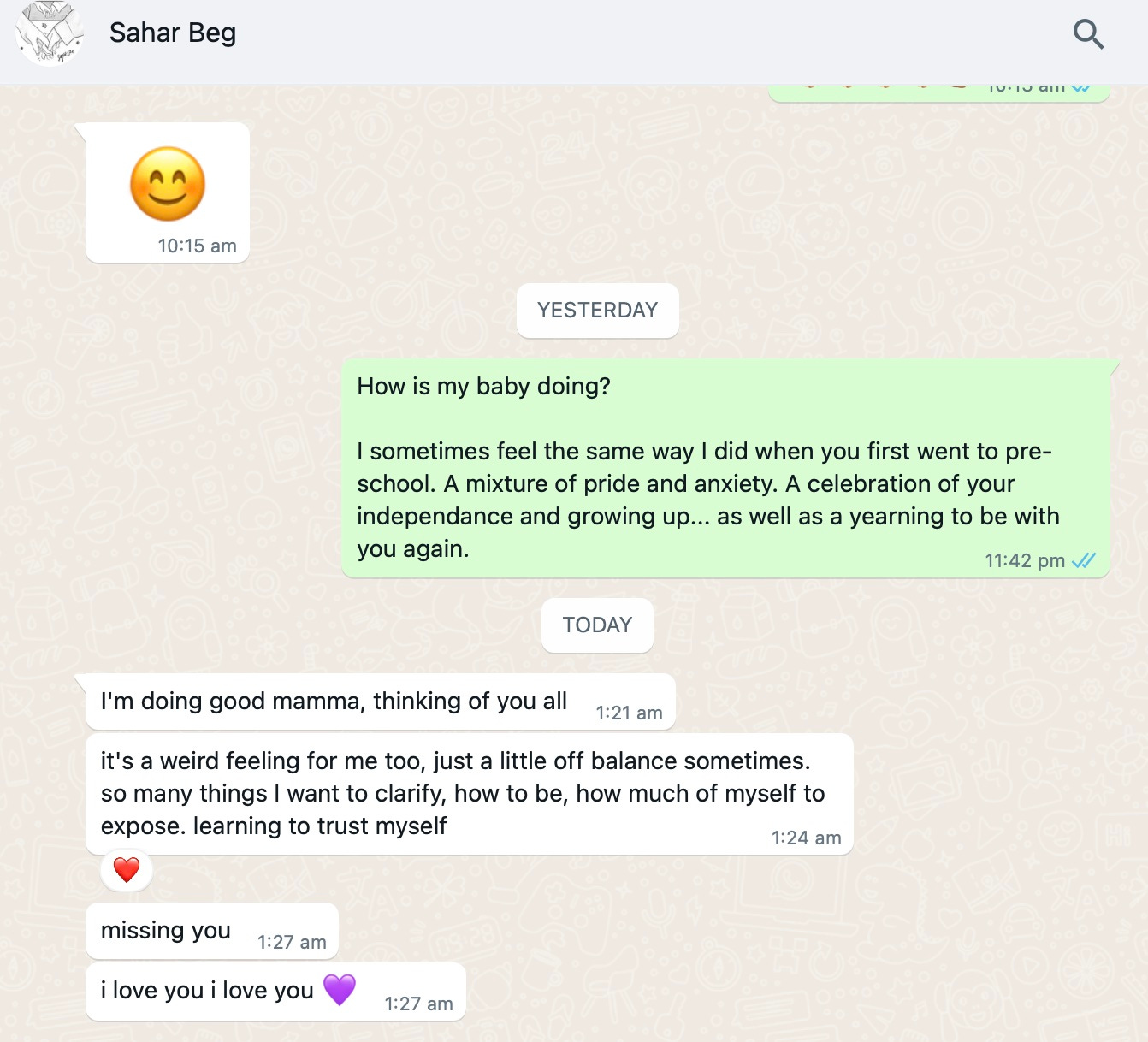
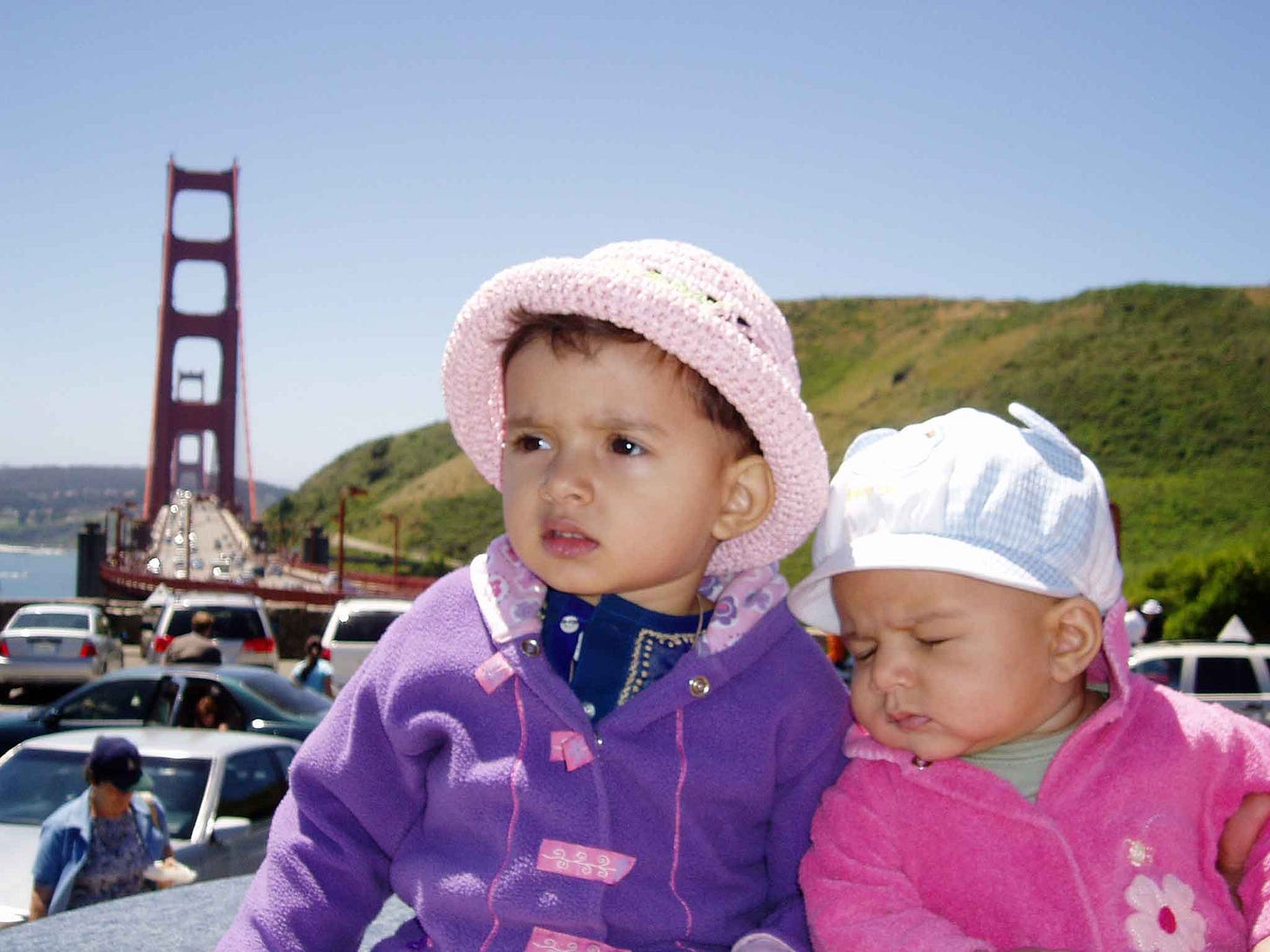

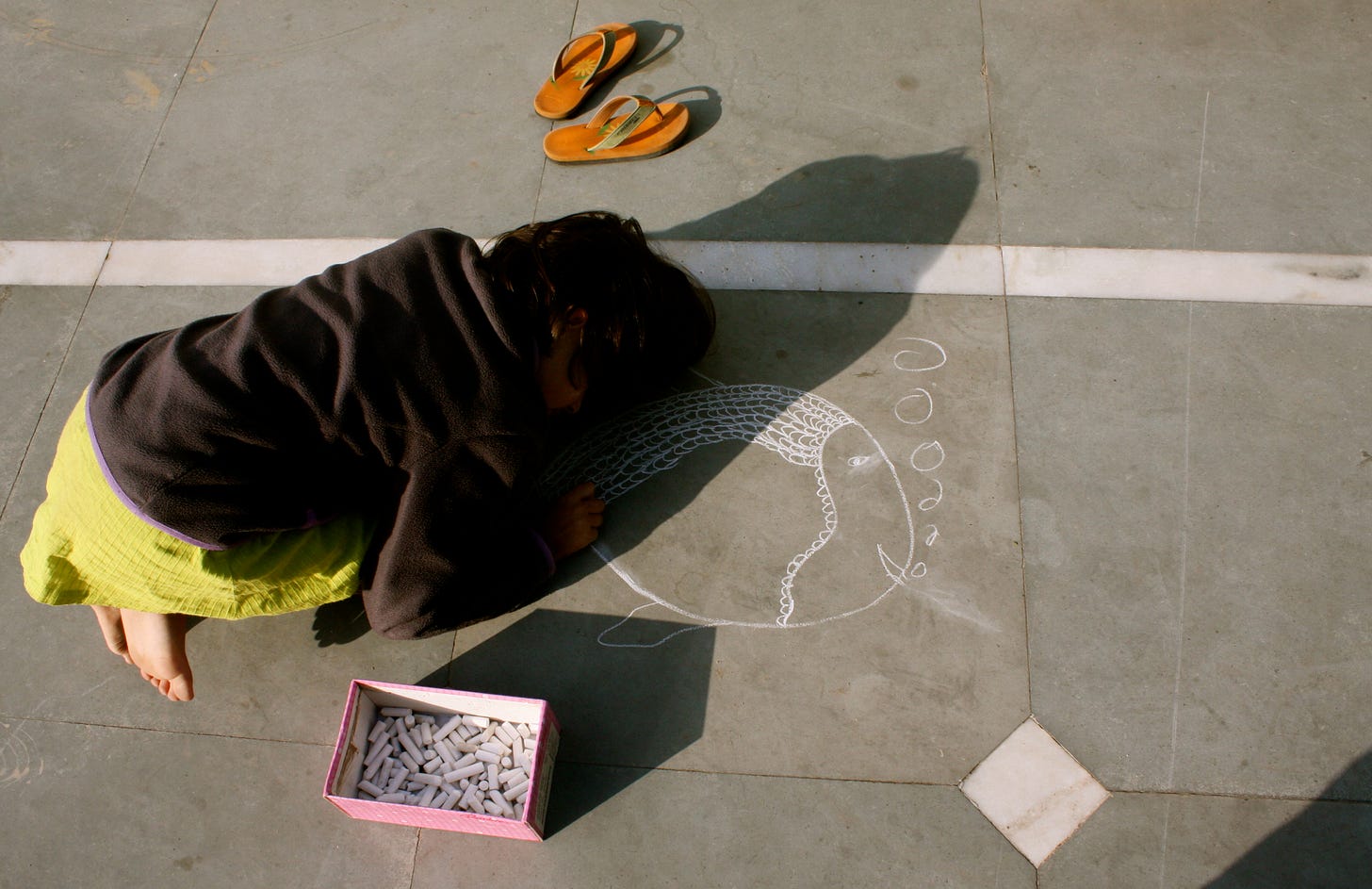
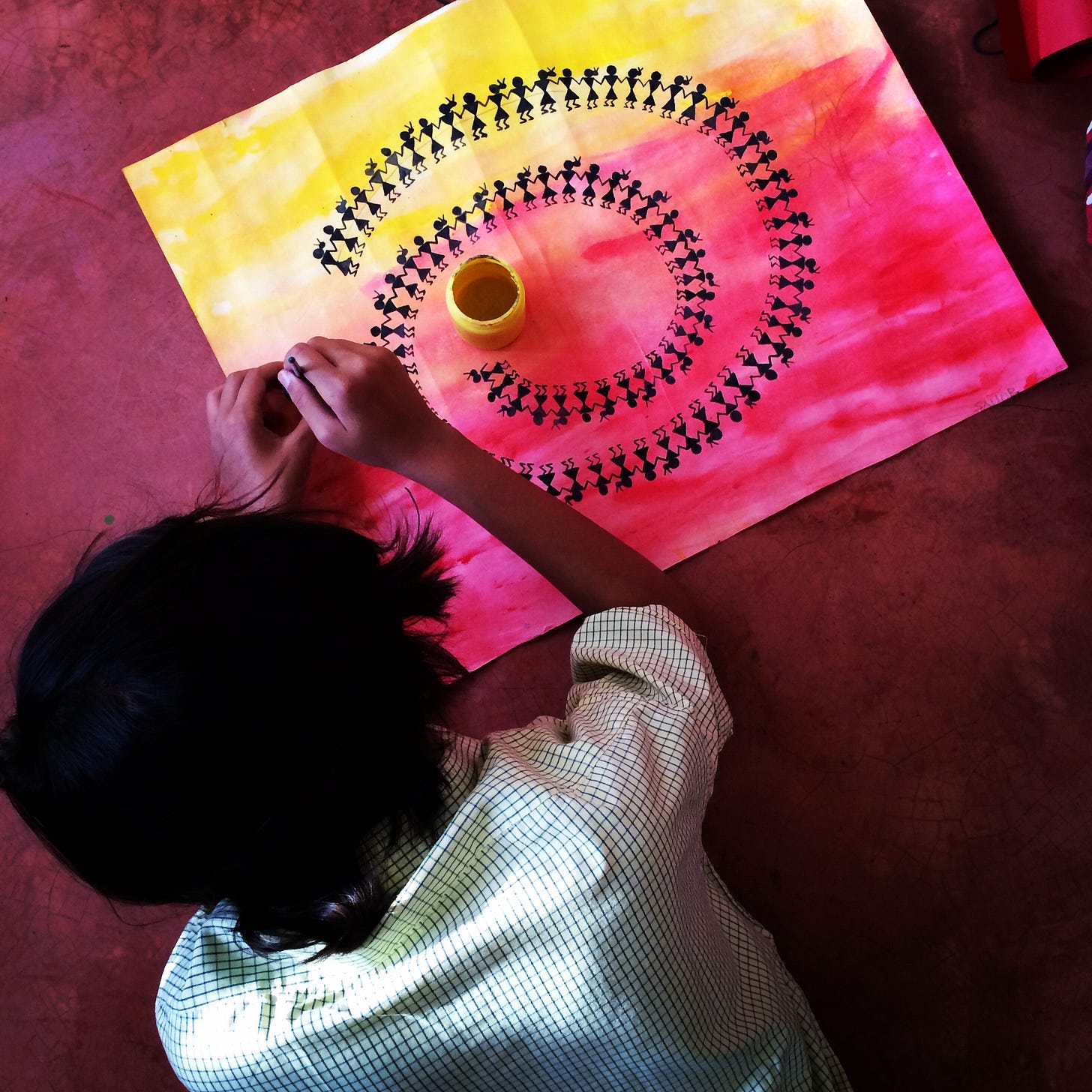
"It's okay to be angry with Mamma"
🥺🥺
Sahar is going to be okay, no matter what. *Knocks on wood*
Reading and rereading, and feeling a lot as a second-born who has only a first-born :)
While reading you I'm thinking: the beautiful thing about going back to the hurried writings, grainy videos, candid photos is always that you don't just get a magical glimpse of the essence of this human you have birthed, but also the complete and otherworldly person you were, at each stage of being attached to this soul. That's probably why it's hard to separate, but the good thing is that you know you've already done it - many times - before ❤️